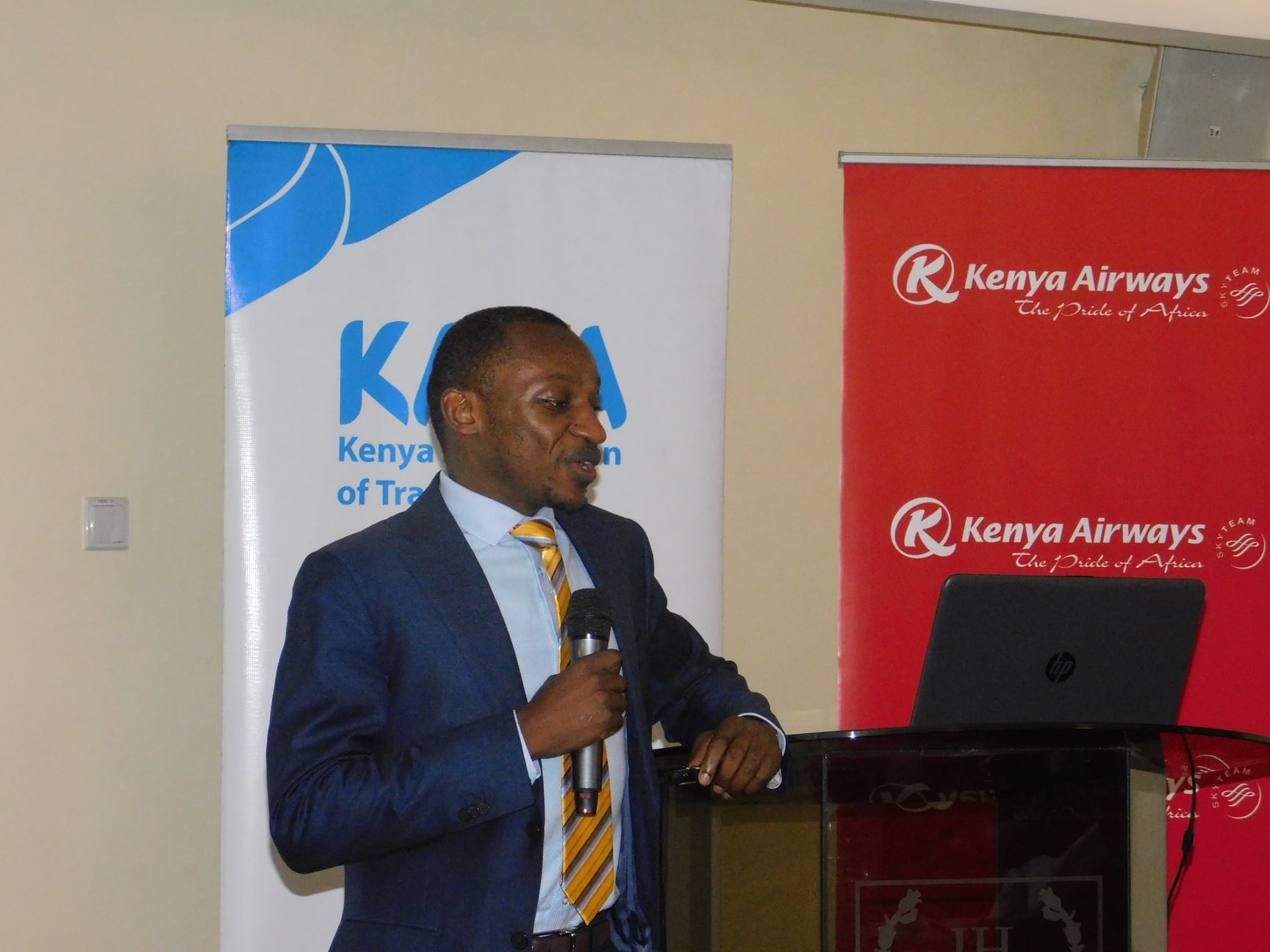The Kenya Association of Travel Agents (KATA) and Kenya Airways (KQ) on Tuesday 22nd June held an industry meeting to review strategies that will strengthen the airline’s ties with the Travel Trade actors in Kenya and to discuss various issues affecting the travel industry.
Speaking during the event, KATA Chairman Mohammed Wanyoike noted that travel agents play an integral role to aid the recovery of travel in Kenya, and particularly have become a key partner to the country’s national carrier.
He said that travel agencies have lend a hand to the industry during the most difficult time when travellers were exposed to many complexities in a number of areas that were necessitated by the stringent COVID-19 travel protocols.
While emphasizing on the importance of strengthening KQ-travel agents’ relations, Ms Agnes Mucuha, KATA’s Chief Executive noted that Travel Agents in Kenya account for more than 75% of passenger number bookings to KQ, a position that is critical to keeping KQ flights in the skies.
Her sentiments come at a time when travel agents are reporting surging domestic leisure travel and an uptick in ticket sales for international travel. Key markets in Europe and North America are opening up bringing with it a pent-up demand to travel among consumers.
Industry Challenges
Since the onset of Covid-19 pandemic, travel agents in Kenya have had to grapple with issues ranging from unsettled refunds from airlines, scrapping of commission and incentives by some carriers, price wars, restrictive fare rules, frequent flight re-scheduling and interruptions, unreliable customer service, restrictive ADMs and EMDs and disruptions in local flight schedules among others.
The KATA-KQ industry meeting was meant to address some of these challenges that the travel trade continues to endure while offering a way forward even as travel begins to resume.
Mr Wanyoike hailed KQ for their flexibility and honoring customer refunds following the high cancellation rates during the pandemic. The airline offered dedicated customer support to the industry, quickly addressing the many concerns raised by travel agents.
He assured the national carrier of an unequivocal support from the travel agents even as it steers its path back to profitability.
Strengthening the Airline-Agent Relationship
KQ Chief Commercial and Customer Officer (CCCO), Julius Thairu, assured travel agents of the airline’s continued support even as the two parties continue to enjoy a cordial relationship.
He noted that the Kenya air travel market remains one of the most competitive and lucrative on the African continent with just about every other major international carrier plying the Nairobi route.
Mr Thairu reiterated that for KQ to maintain its competitiveness and reclaim its market share in Africa, it will need a strengthened relationship with the travel trade community and other partners, and to come up with agile ways to defend its market share.
The airline aspires to become the preferred African Carrier and a sustainable business with a break-even position by 2024.
In April this year, Kenya Airways inked a codeshare agreement with national Congo Airways aimed at expanding their reach in the domestic, African and international routes. The national carrier has also expanded its codeshare partnership with Delta Airlines an agreement that takes the duo’s code-share network to a combined 39 cities across Africa, USA and Canada.
The airline, that has been in the process of repurposing some of its Dreamliners to preighters, has also been registered as a UN cargo service provider, a position that will accord them opportunities in UN vaccines and pharma distribution, humanitarian aid transport, UN personnel transportation and UN aircraft charter services.
The carrier is also looking to diversify its service offering according to its market segmentation. Tom Reeves, KQ’s Ag. Sales Director said that the airline is looking into areas of KQ Holidays for leisure travelers, “Koolfliers” targeted for the student market, and medical tourism flights. The airline will also be looking to implement an NDC solution for the market towards the end of this year.
Among the key tenets that Kenya Airways will be focusing on is to repurpose its capacity to support the travel trade who will enable them build brand equity, leverage technology towards existing customers while promoting value, de-risking the business, redefine their price strategy and rebooking policy, leveraging more partnerships and incentivizing future purchases and operationalizing new routes.
Improved Customer Experience
Kenya has a robust and mature travel market. Nairobi’s attractiveness is hinged on its centrality on the continent which allows for easy connectivity to other regional destinations, as well as the hosting of key multinational businesses and non-profit agencies such as the UN Agencies.
Kenya’s travel agents noted KQ’s improved customer service in the recent past. The KQ call center has become agile and queries are attended to within a very short turn-around time, with customer centric solutions being offered during these uncertain times. Travel Agents have been complimenting the customer experience for KQ by providing the most recent and up to date advisory to travelers seeking to visit various destinations on their network under the current Covid19 travel protocols and regulations that have been changing without any notice or warning. This teamwork and coordinated approach in serving the travelers is impacting KQ’s customer experience positively.

